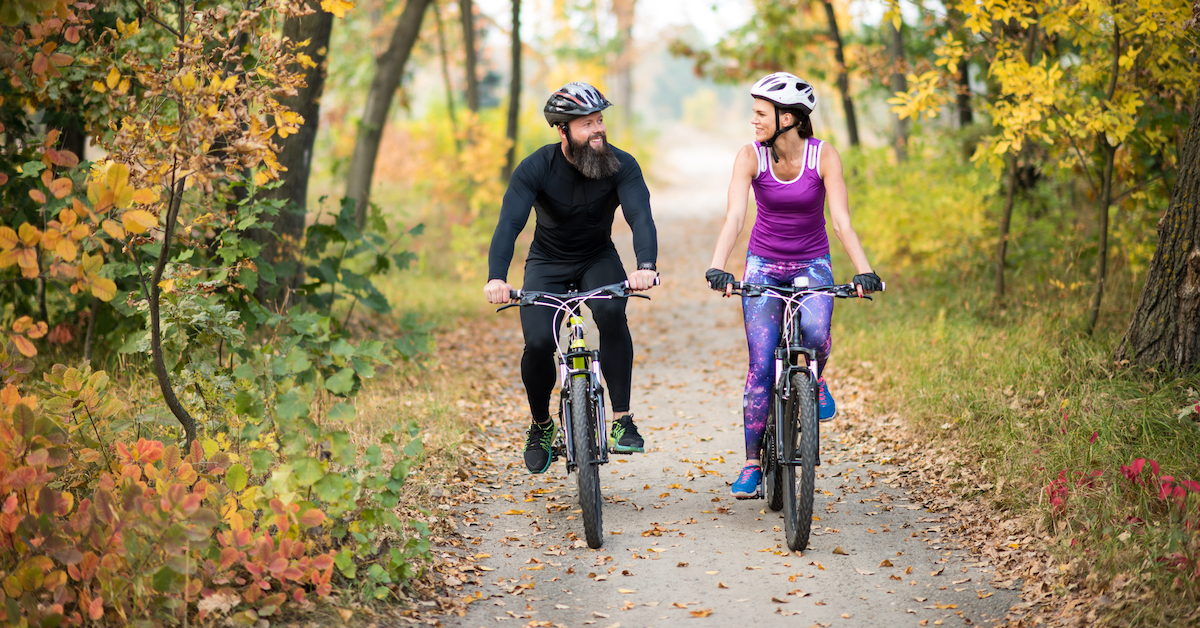It’s a medical fact that exercise helps the brain function better. But just like food, not all exercise is created equal. Scientists are now exploring exactly which types of physical activity are best for boosting mental focus and memory and are finding something for just about everyone.
A study at Switzerland’s University of Geneva examined the memory-boosting benefits of intense physical activity.
15 Minutes is All It Takes
Their study demonstrates that pushing yourself through as little as 15 minutes of an intense exercise – such as pedaling furiously on an exercise bike – can boost your memory and enhance your ability to learn a new skill.
According to the researchers, the type of skill for which intense exercise is most effective is what’s called a “motor sequence” skill – one that involves the use of your muscles as you do when you’re learning to type or figuring out a new dance step.1
The reason for improved learning in the area of motor skills has to do with the way intense exercise triggers memory processing. The researchers say that when you engage in an intense activity like bike racing or sprinting, your body produces a flood of compounds called endocannabinoids – a specialized type of substance that connects with receptors in various parts of the body including the brain and immune cells.
When the endocannabinoids connect with certain receptors they produce the enjoyable feeling that has been called the “runner’s high.”
“They circulate in the blood and easily cross the blood-brain barrier,” says researcher Sophie Schwartz. “They then bind to specialized cellular receptors and trigger this feeling of euphoria. In addition, these same molecules bind to receptors in the hippocampus, the main brain structure for memory processing.”
And while the Swiss investigation showed that this release of endocannabinoids after intense activity is linked to more effective motor learning, they also showed that moderate exercise, like a relatively easy jog, is connected to improved associative memory, or learning concepts or the relationships between various things.2
According to researcher Blanca Marin Bosch, “These molecules (the endocannabinoids) are involved in synaptic plasticity – the way in which neurons are connected to each other – and thus may act on long-term potentiation, the mechanism for optimal consolidation of memory.”
But Dr. Bosch also notes that different types of memory employ different brain mechanisms. And while exercise always improves memory more than being sedentary, different types of exertion have different brain effects.
The Power of “Relaxing” Exercise
Another activity you can use to influence your brain activity, according to further research at the University of Geneva, is the relaxing act of rocking yourself in a hammock or rocking chair.
This research shows that rocking yourself to sleep – and even sleeping in a bed that rocks while you sleep – leads to sounder sleep and supports better memory consolidation while you snooze.
The people involved in these tests fell asleep in a sleep lab in beds that gently rocked all night. Researchers said that they fell asleep faster and spent more time in non-rapid eye movement sleep during the night (a non-dreaming sound sleep), enjoyed deeper sleep and awoke fewer times. Plus, when they took memory tests after their night of being rocked to sleep, their recall improved.3
The researchers believe that rocking improves sleep and memory because it rhythmically stimulates the vestibular system – the sensory system that helps you keep your balance and maintains your spatial orientation.
The studies also show that rocking affects brain waves during sleep. Rocking causes a coordination of specific brain waves of non-rapid eye movement sleep – what are called slow oscillations and spindles. Rocking helps to synchronize neural activity in the thalamo-cortical networks of the brain, which influence sleep and cement memories.
Memory Rewards
Here’s another easy memory tip that I think we can all get behind….
According to other research at Geneva, rewarding yourself with a little something when you remember an important item can help you remember better. For example, if you’re trying to memorize a speech or sales pitch, treating yourself to a small shopping splurge or a special dinner after your success can reinforce your recall abilities.
The researchers say this works because, while your memory may be primarily run by the brain’s hippocampus, giving yourself a reward stimulates the brain location called the ventral tegmental area, which, in response to the reward, releases extra amounts of the neurotransmitter dopamine.
The dopamine produces feelings of satisfaction related to receiving your special treat. “It is the dialogue between these two brain areas that helps maintain motivation, improve learning, and consolidate memories, even over time,” says researcher Kristoffer Aberg.







